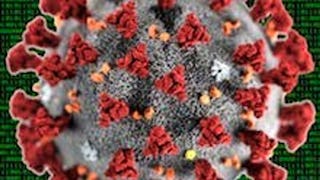Unlock the future of biological data analysis with our "Introduction to Bioinformatics" course. This comprehensive course combines bioinformatics, molecular biology, and computational techniques, equipping you with the skills to analyze complex biological and clinical data. Beginning with fundamental concepts, the course explores advanced topics like RNA sequencing analysis, single-cell genomics, gene-gene association studies, and medical text mining.

Entdecken Sie neue Fähigkeiten mit 30% Rabatt auf Kurse von Branchenexperten. Jetzt sparen.


Introduction to Bioinformatics

Dozent: BITS Pilani Instructors Group
2.334 bereits angemeldet
Bei  enthalten
enthalten
Empfohlene Erfahrung
Was Sie lernen werden
Synthesize multi-omics data to generate integrative biological insights.
Critically evaluate and refine computational algorithms including patient subtyping, cell classification, and relationship extraction.
Apply tools and techniques like language models, clustering and visualisation, to analyse and interpret complex biological and clinical datasets.
Kompetenzen, die Sie erwerben
- Kategorie: Clinical Data Management
- Kategorie: Bioinformatics
- Kategorie: Precision Medicine
- Kategorie: Scientific Visualization
- Kategorie: Algorithms
- Kategorie: Correlation Analysis
- Kategorie: Biostatistics
- Kategorie: Cell Biology
- Kategorie: Computational Thinking
- Kategorie: Data Management
- Kategorie: Unsupervised Learning
- Kategorie: Markov Model
- Kategorie: Dimensionality Reduction
- Kategorie: Data Mining
- Kategorie: Biotechnology
- Kategorie: Applied Machine Learning
- Kategorie: Chemical and Biomedical Engineering
- Kategorie: R Programming
- Kategorie: Informatics
- Kategorie: Data Analysis
Wichtige Details

Zu Ihrem LinkedIn-Profil hinzufügen
Juni 2025
56 Aufgaben
Erfahren Sie, wie Mitarbeiter führender Unternehmen gefragte Kompetenzen erwerben.

In diesem Kurs gibt es 10 Module
Discover the exciting field of Bioinformatics, focusing on its role in analysing biological data and its applications. Gain foundational knowledge of its interdisciplinary nature and importance in modern biology. Learn about unique methodologies and contributions of each subfield, essential data types, and best practices for data management.
Das ist alles enthalten
15 Videos7 Lektüren6 Aufgaben2 Plug-ins
In this module, you will explore the fundamentals of molecular biology, focusing on the structure and function of nucleic acids, proteins, and other essential biomolecules. You will learn how DNA and RNA store, replicate, and express genetic information. We will cover transcription and translation, revealing how proteins are synthesised and function within the cell. Additionally, you will examine gene regulation, mutations, and the molecular basis of genetic variation and evolution. Understanding these principles is essential for analyzing and interpreting biological data using bioinformatics tools.
Das ist alles enthalten
10 Videos10 Lektüren5 Aufgaben2 Plug-ins
In this module, you will explore crucial molecular biology concepts vital for bioinformatics. Create a comprehensive concept map to understand DNA replication and gene expression processes. Study DNA sequencing principles to learn methods for decoding genetic information, and examine gene structure and regulation in eukaryotes and prokaryotes. Discover the central dogma of molecular biology, describing the flow of genetic information from DNA to RNA to protein. This module builds a solid foundation for applying computational tools in bioinformatics, enhancing your knowledge and skills in this fascinating field.
Das ist alles enthalten
10 Videos10 Lektüren5 Aufgaben2 Plug-ins
This module teaches you how to leverage RNA sequencing data for patient subtyping. You will master the entire workflow, from raw data acquisition to grouping samples. Start with hands-on experience in extracting and normalizing RNA-seq data from the NCBI Gene Expression Omnibus (GEO) database. Then, explore and apply two clustering approaches: Hierarchical Clustering and the Louvain Algorithm, to identify meaningful patient subtypes. Conclude by comparing the effectiveness of these clustering methods and learning survival analysis using Kaplan-Meier curves.
Das ist alles enthalten
12 Videos4 Lektüren6 Aufgaben1 Plug-in
In this module, you will explore machine learning applications for cell type classification using single-cell RNA sequencing (scRNA-seq) data. Learn the full workflow, from data acquisition and preprocessing to feature selection and classification algorithm implementation. Engage in hands-on exercises to build and evaluate models for accurate cell type identification, gaining practical insights into scRNA-seq data analysis for biological research.
Das ist alles enthalten
10 Videos4 Lektüren6 Aufgaben2 Plug-ins
Explore gene-gene associations using methylation and mRNA data from The Cancer Genome Atlas (TCGA). Learn to process and analyze high-dimensional omics data, construct gene association networks, and handle real cancer datasets. Master normalization techniques, network construction methods, and visualizations to enhance your biological understanding through practical, hands-on experience.
Das ist alles enthalten
12 Videos4 Lektüren6 Aufgaben1 Plug-in
In this module, you will explore the core concepts and practical applications of gene enrichment and pathway analysis in biological research. Learn to analyse gene lists, understand Gene Ontology structures, and interpret biological pathways. Gain hands-on experience with industry-standard tools like DAVID and STRING to transform complex genomic data into meaningful insights. Emphasise understanding pathway networks and disease associations to prepare for real-world genomics research applications.
Das ist alles enthalten
11 Videos5 Lektüren6 Aufgaben2 Plug-ins
Explore Natural Language Processing (NLP) with a focus on biomedical applications. Start with core NLP concepts and progress through essential libraries and preprocessing techniques for medical text data. Delve into specialised topics like Named Entity Recognition and pattern matching in clinical contexts. Learn about transformer architectures and their applications in biomedical text analysis. Gain hands-on experience with tools like BioBERT and NLTK to process, analyse, and extract insights from medical literature.
Das ist alles enthalten
10 Videos3 Lektüren5 Aufgaben1 Plug-in
Explore medical text mining and knowledge extraction in this module. Begin by examining the unique characteristics of medical text and PubMed data organization. Progress through medical ontologies and specialised language models like BioBERT for a solid text analysis foundation. Finally, extract and analyze complex medical relationships, including disease-symptom associations, drug interactions, and comorbidity patterns. Apply advanced NLP techniques to gain actionable insights from medical literature.
Das ist alles enthalten
13 Videos4 Lektüren6 Aufgaben1 Plug-in
In this module, you'll learn the essential knowledge and techniques for working with raw DNA data, including understanding its structure and organization, like SNP data. You'll dive into genetic distance metrics to identify genetic relationships between individuals and explore common distance calculation algorithms and DNA matching techniques. You'll also learn methods for statistically analyzing genetic match results and building a relationship prediction system. Finally, you'll explore visualization and network analysis approaches to gain deeper insights from DNA match data, create interactive chromosome-level visualizations, and use graph-theoretic methods to uncover complex familial relationships within the DNA match network.
Das ist alles enthalten
11 Videos5 Lektüren5 Aufgaben1 Plug-in
Dozent

Mehr von Health Informatics entdecken
 Status: Kostenloser Testzeitraum
Status: Kostenloser TestzeitraumUniversity of California San Diego
 Status: Vorschau
Status: VorschauKing Abdullah University of Science and Technology
 Status: Kostenloser Testzeitraum
Status: Kostenloser TestzeitraumUniversity of California San Diego
 Status: Vorschau
Status: VorschauThe State University of New York
Warum entscheiden sich Menschen für Coursera für ihre Karriere?





Neue Karrieremöglichkeiten mit Coursera Plus
Unbegrenzter Zugang zu 10,000+ Weltklasse-Kursen, praktischen Projekten und berufsqualifizierenden Zertifikatsprogrammen - alles in Ihrem Abonnement enthalten
Bringen Sie Ihre Karriere mit einem Online-Abschluss voran.
Erwerben Sie einen Abschluss von erstklassigen Universitäten – 100 % online
Schließen Sie sich mehr als 3.400 Unternehmen in aller Welt an, die sich für Coursera for Business entschieden haben.
Schulen Sie Ihre Mitarbeiter*innen, um sich in der digitalen Wirtschaft zu behaupten.
Häufig gestellte Fragen
To access the course materials, assignments and to earn a Certificate, you will need to purchase the Certificate experience when you enroll in a course. You can try a Free Trial instead, or apply for Financial Aid. The course may offer 'Full Course, No Certificate' instead. This option lets you see all course materials, submit required assessments, and get a final grade. This also means that you will not be able to purchase a Certificate experience.
When you purchase a Certificate you get access to all course materials, including graded assignments. Upon completing the course, your electronic Certificate will be added to your Accomplishments page - from there, you can print your Certificate or add it to your LinkedIn profile.
You will be eligible for a full refund until two weeks after your payment date, or (for courses that have just launched) until two weeks after the first session of the course begins, whichever is later. You cannot receive a refund once you’ve earned a Course Certificate, even if you complete the course within the two-week refund period. See our full refund policy.
Weitere Fragen
Finanzielle Unterstützung verfügbar,

